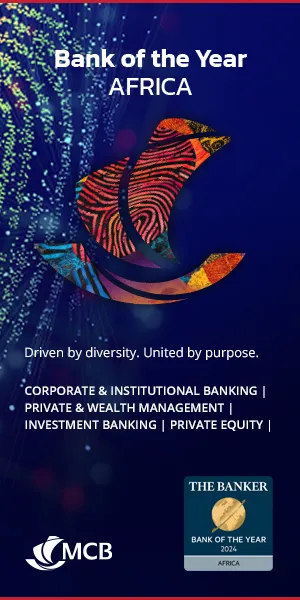As far as entrepreneurial success goes, few can hold a candle to Strive Masiyiwa. The Zimbabwean-born, UK-based founder and executive chairman of the diversified telecommunications group, Econet Wireless, can lay claim not only to being a member of Africa’s new business elite, but has a global pedigree to rival many of his peers around the world.
Visit the chairman’s page on his company’s website and you are inundated with a who’s who of global business, policy and philanthropy. From household business names such as British billionaire Richard Branson, to heads of state (African and global), to leading philanthropists such as Bill Gates, Masiyiwa knows them all.
Visit his opulent home on the outskirts of London in the UK, and the walls are adorned with awards and pictures with global leaders – one of these shows Masiyiwa having a casual chat with US President Barack Obama in the Rose Garden at the White House.
To use the clichéd term, everything about Masiyiwa’s life has the makings of a man who “has arrived”. It has, however, been far from smooth sailing since he first got into the entrepreneurship game in Zimbabwe, back in the 1980s – long before any claims to an “Africa rising”.
It was here that he founded Econet Wireless, a company he subsequently built into one of the largest in the country. Following a bitter, year-long legal dispute with the Zimbabwean government, which attempted to deny the company a licence to operate, Masiyiwa packed his bags in 2000 and moved to South Africa – to date he has not returned to his home country.
Leaving Zimbabwe meant starting again, and it was here that he set up the Econet Wireless Group, which, while sharing the same name, is a wholly separate entity to the company he left behind. Today, the business spans much of Africa, and also operates in Europe, the Americas and Asia.
There is little about entrepreneurship Masiyiwa has not done or experienced, and it is this backdrop which has made him a symbol for Africa’s much-vaunted entrepreneurial spirit and economic potential.
Entrepreneurship has never been more fashionable, and Africa is no exception. It is difficult to keep track of the myriad incubators, accelerators, kickstarters, tech hubs and many other initiatives aimed at harnessing the entrepreneurial energy of its largely young population. According to the UK-based research programme, the Global Entrepreneurship Monitor, nobody is more entrepreneurial than sub-Saharan Africans. So rampant is the entrepreneurship circuit that it can resemble a frenzy, with perspective on what building a business actually requires sometimes taking a backseat.
Masiyiwa, himself a tireless advocate of entrepreneurship on the continent, argues that the current euphoria, while welcome, must be handled with care.
“It does concern me to encourage young people to get up and try and build up businesses and take on the barriers that are there, but the barriers are extensive and sometimes the policymaking just is not there. Where it exists it’s ham-fisted and heavy-handed, inconsistent and lacks transparency.”
During a gathering of African business leaders during US President Obama’s recent visit to Kenya, which Masiyiwa attended, he used the opportunity to warn his peers of the potential pitfalls of this.
“I was very forthright about this, almost to the discomfort of many people. I pointed out that we have to be very careful…On the one hand we have to stimulate and create hope and get young people to set up businesses and so forth, but if the policymaking isn’t there, if the institutional framework that helps them isn’t there, their anger will explode because we would have sold them a false regime.”
Such language may not be soothing to many proponents of the entrepreneurship agenda, but they are strong reminders of the complexity and nuance of 21st century Africa. Despite rapid GDP growth across the continent, there is mounting evidence that the barriers to setting up and building a business remain formidable in many countries.
From hard constraints such as limited infrastructure, including power, transportation and communication, to less-tangible ones such as legal frameworks and competitiveness, many of Africa’s economies remain difficult, if not hostile, environments for entrepreneurs.
According to the World Economic Forum’s Global Competitiveness report – which benchmarks countries according to 12 ‘pillars’, including institutions, infrastructure and business sophistication – African economies continue to cluster towards the bottom of the rankings. With a few notable exceptions, the situation is no different in the World Bank’s Doing Business rankings.
Entrepreneurship can at times feel like a convenient solution to major challenges such as job creation, at a time when governments are struggling to provide economic opportunities to Africa’s huge young population.
“We’ve had these narratives before. A few years ago we had a whole narrative about the informal sector as a solution, in a way to take governments off the hook. It’s almost like – well, you know it’s your responsibility, it’s got nothing to do with us.”
An estimated 10-12m graduates enter the labour market across Africa annually, many of whom struggle to find jobs. “Even in the most entrepreneurial nation the world has ever known, the United States, the vast majority of people are not looking to be business people. They need jobs!” Masiyiwa remarks. “We need entrepreneurs who will come up and create businesses, yes, but not everybody’s an entrepreneur.”
He also cautions about lumping Africa together in terms of entrepreneurship. “The reality we have is that the different countries are at different levels. Kenya, for example, is extremely exciting in terms of the policy space and how they are tackling things. President Kenyatta, having been a businessman himself and being young, he’s incredibly energetic. The same goes for Paul Kagame in Rwanda. Different style but he’s aware of the issues.”
Emphasising that there are many stories of success to point to, he nonetheless concludes that “it’s a patchy story and it’s a challenge for this generation.”
The job creation imperative
The stakes are high. An estimated 60% of Africa’s population is under the age of 25. According to the African Development Bank, less than a fifth of the continent’s young workers – those aged 15-25 account for 45% of the total labour force – find waged employment. Hundreds of millions of jobs will need to be created in the coming decades to absorb this youth bulge.
“These are the big issues,” Masiyiwa says. “Can we deliver and can we create enough wealth and prosperity that delivers those kind of jobs? Otherwise this whole thing goes up in smoke, and we’re kind of running out of time. We’re running out of time to get the kids educated, we’re running out of time to set up a framework for them to be skilled up to be able to get jobs.”
It may be tempting to despair at such figures, and the prospect of the continent’s touted demographic dividend turning into a time bomb – and while Masiyiwa concedes that “there isn’t a single panacea”, he insists that practical steps can be taken to address the challenge of job creation.
Skills development is one such area, he argues. “We need to move the conversation around education away from meaning primary and secondary school. We need to move the whole conversation around education to skills.”
While many countries on the continent have made progress on getting children into schools, learning outcomes – and particularly the development of skills relevant to the job market – remain very low, even in advanced economies such as South Africa. According to a survey carried out by the African Economic Outlook, 54% of respondents found a mismatch of skills between what job seekers have to offer and what employers require to be a major obstacle.
“We don’t need to talk about primary, universal education, we need to talk about education which gives somebody skills to be able to feed a family,” Masiyiwa says, adding that “the skills that we need to focus on aren’t sophisticated ones. We need carpenters, we need plumbers, we need craft skills because not everybody is out there to be a hi-tech engineer.”
In addition to practical skills development, Masiyiwa highlights the continent’s lack of labour market integration. “I fill a passport once a year, not with American and British visas, but with African visas,” he observes, pointing to the difficulties most Africans experience when trying to move across the continent. With exceptions such as the five-country East African Community, the free movement of labour remains a distant prospect for most.
“Companies need to be able to move skills around easily and in particular we need to move African skills easily, so there is an inherent xenophobia towards one another that’s an elephant in the room that we need to honestly face up to and get rid of.”
Beyond the bottom line
Masiyiwa’s frustration with such constraints translates into concrete action for him. Beyond being a pan-African employer through his business, philanthropy plays an important role. Through his foundation, he supports more than 40,000 orphans to access education, while he has provided scholarships to 200,000 children over the past 20 years.
Beyond these direct efforts, Masiyiwa actively lobbies governments to address core challenges such as job creation, and believes business can – and should – be doing much more to drive this.
“Part of our challenge is the approach that African business leaders sometimes take, particularly those of us who are at the top of the game. When we go to see African [political] leaders about our business interests we tend to focus too much on our own needs.
“I have been pushing a lot of business leaders to say ‘Yes, you get to see the head of state, don’t go there talking about your business, talk about what needs to happen for everyone’.”
Want to continue reading? Subscribe today.
You've read all your free articles for this month! Subscribe now to enjoy full access to our content.
Digital Monthly
£8.00 / month
Receive full unlimited access to our articles, opinions, podcasts and more.
Digital Yearly
£70.00 / year
Our best value offer - save £26 and gain access to all of our digital content for an entire year!

 Sign in with Google
Sign in with Google 






